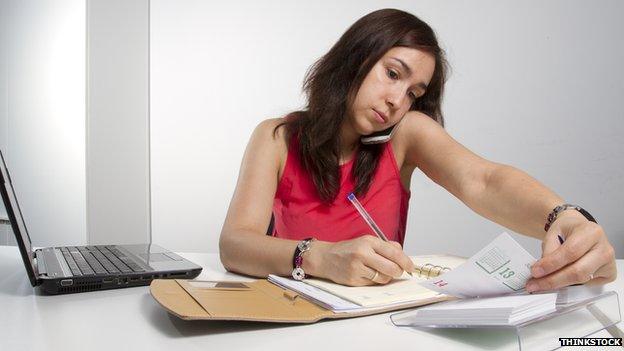Working mothers benefit daughters, study says
- Published

Working mothers serve as role models to their daughters
Working mothers' adult daughters tend to get better jobs, while their grown-up sons tend do more in the home, a Harvard University study says.
It found daughters of mothers in work have better careers, higher pay and more equal relationships than those of stay-at-home mothers.
This effect was particularly pronounced in Britain and the US, the study, based on data from 24 countries, found.
Mothers should not feel work means they are "abandoning" children, it added.
The researchers, led by Kathleen McGinn, said: "Employed mothers often internalise social messages of impending doom for their children, and fathers who choose to emphasise care-giving run up against countervailing social messages signalling their inadequacy as breadwinners."
'Household lag'
But on examining data from the International Social Survey Programme from 2002 and 2012, they concluded that daughters of working mothers were paid 4% more than their peers.
They also found one in three daughters of working mothers were in managerial posts, compared with one in four of those of stay-at-home mothers.
The study said: "These findings suggest that in addition to transmitting gender attitudes across the generations, mothers' employment teaches daughters a set of skills that enable greater participation in the workforce and in leadership positions."
It found no links between maternal employment and adult sons' working patterns.
However, sons of working mothers tended to "spend more time caring for family members than adult sons of stay-at-home mothers".
The study concluded: "Women across the world have increasingly entered the paid workforce, but the parallel increase in men's contributions to unpaid work within households lags behind. Women's entrenched responsibilities for household work constrain their choices in the public sphere.
"Men also bear costs from the unequal distribution of household responsibilities; gendered practices and norms in public and private spheres act as barriers to men who want to take on bigger roles at home."
- Published22 July 2011